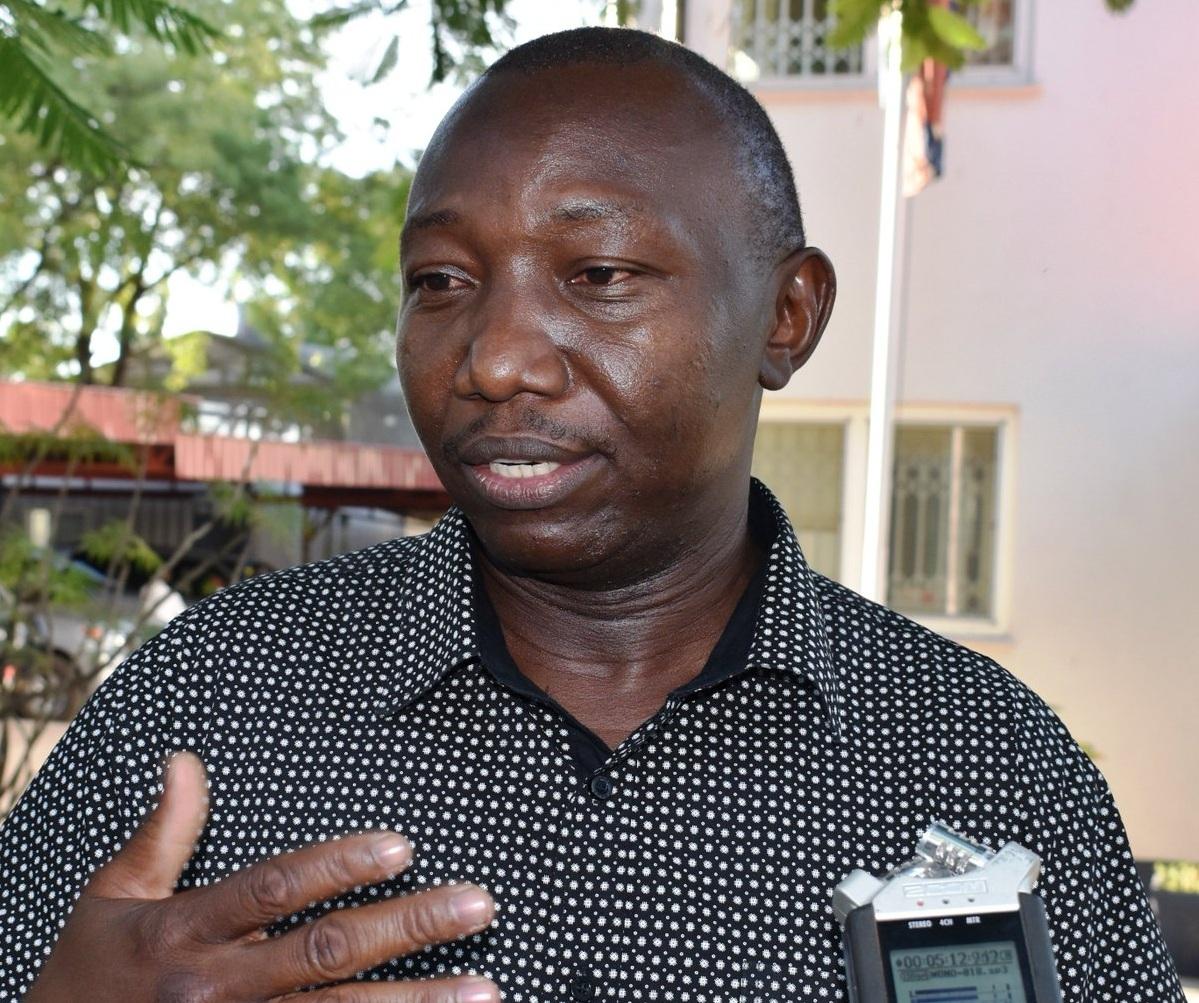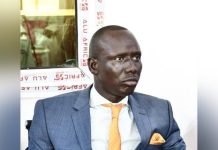Africa-Press – South-Sudan. Prominent South Sudan activist who is being hunted down by South Sudan National Security Service (NSS) Rajab Muhandis has resigned as representative of the South Sudan Civil Society Forum (SSCSF) in the Reconstituted Joint Monitoring and Evaluation Commission, according to a letter of resignation extended to Sudans Post.
In the letter, Muhandis said he resigned because he sees no hope in the revitalized peace agreement which he said is unlikely that the 2018 peace agreement will bring lasting peace agreement saying all resolutions of the R-JMEC tasked with overseeing the implementation of the peace agreement are not being implemented.
“This letter is to inform you and the membership of SSCSF of my intention to resign from my position and responsibilities as the representative of SSCSF in RJMEC effective September 12, 2021, the occasion of the third anniversary of the signing of the R-ARCSS,” Muhandis said in his resignation letter.
“..my resignation comes after careful evaluation of the status of implementation of the R-ARCSS and drawing a conclusion that maintaining support for the stalled Juba-centric peace process is no longer in the best interest of the suffering masses in the country and in the refugee settlements,” he added.
Muhandis said President Salva Kiir Mayardit has lost interest and confidence in the implementation of the peace agreement citing President Salva Kiir’s speech at the launch of the workshop on constitutional-making process where the South Sudanese head of state said ‘the agreement was designed in a way that it can’t be implemented’.
“Those mandated by Article 1.1.1 of the R-ARCSS to implement the peace agreement have lost confidence in the peace process. While launching the Workshop on the Constitution Making Process on July 25, 2021, the President publicly declared that the peace agreement is too complicated to be implemented, and that those who designed the agreement did not intend that it would be implemented,” he said.
“The latest report of the UN Panel of Experts on South Sudan’, released on April 15, 2021, further confirms this loss of confidence of the parties in the peace implementation. Paragraph 18 of the report in part states that ‘As a result, many of the same political and military leaders told the Panel that they had lost hope in the Agreement. In interviews with the Panel, officials from SPLM, SPLM/ A-IO and the South Sudan Opposition Alliance cited various reasons for their dissatisfaction with the Agreement, but they mostly agreed that the slow pace of implementation and the shifting political stances of some of the signatories had made the Agreement unlikely to be implemented’. A process whose main implementers have lost faith in it cannot be the same source of hope for the resolution of the multiple and worsening crises in the country,” he added.
Below is the full text resignation of Muhandis. September 12, 2021 Chairman, South Sudan Civil Society Forum (SSCSF), Juba, South Sudan. Mr. Chairman, Re: Letter of Resignation from RJMEC
This letter is to inform you and the membership of SSCSF of my intention to resign from my position and responsibilities as the representative of SSCSF in RJMEC effective September 12, 2021, the occasion of the third anniversary of the signing of the R-ARCSS.
Mr. Chairman, I tender this resignation with full respect for the content of the R-ARCSS. That, if the peace agreement was implemented in letter and spirit, and in consistently sequential and timely manner, as outlined in the implementation matrix, it would have restored lasting peace in our country, reformed institutions, set the country on the path to recovery and development, guarantee safety of the people and would have allowed those displaced and in refuge to return home.
Mr. Chairman, my resignation comes after careful evaluation of the status of implementation of the R-ARCSS and drawing a conclusion that maintaining support for the stalled Juba-centric peace process is no longer in the best interest of the suffering masses in the country and in the refugee settlements. The following are therefore some of the reasons for my resignation:
The latest report of the UN Panel of Experts on South Sudan’, released on April 15, 2021, further confirms this loss of confidence of the parties in the peace implementation. Paragraph 18 of the report in part states that “As a result, many of the same political and military leaders told the Panel that they had lost hope in the Agreement. In interviews with the Panel, officials from SPLM, SPLM/ A-IO and the South Sudan Opposition Alliance cited various reasons for their dissatisfaction with the Agreement, but they mostly agreed that the slow pace of implementation and the shifting political stances of some of the signatories had made the Agreement unlikely to be implemented”. A process whose main implementers have lost faith in it cannot be the same source of hope for the resolution of the multiple and worsening crises in the country.
Considering these observations, I have decided to tender my resignation from the membership of RJMEC. Henceforth, I will support the People’s Coalition for Civil Action (PCCA) to use peaceful demonstrations to demand for a meaningful transition and an end to the crises in the country. I call upon civil society representatives in all R-ARCSS mechanisms to pull out of them to avoid being instrumentalized to propagate the ongoing political deception in the country.
I thank the Forum, for the trust and confidence to allow me to represent civil society in RJMEC. I equally commend the serious and committed members and Secretariat of the Commission for their cooperation over the years. I commend the officers in the security mechanisms for their dedication and professionalism in trying to do their work in such a stalled political process. Their cooperation across the partisan divides maintained the forces under control and was mainly responsible for the partial adherence to the permanent ceasefire in the country over the last three years. Thank you.






